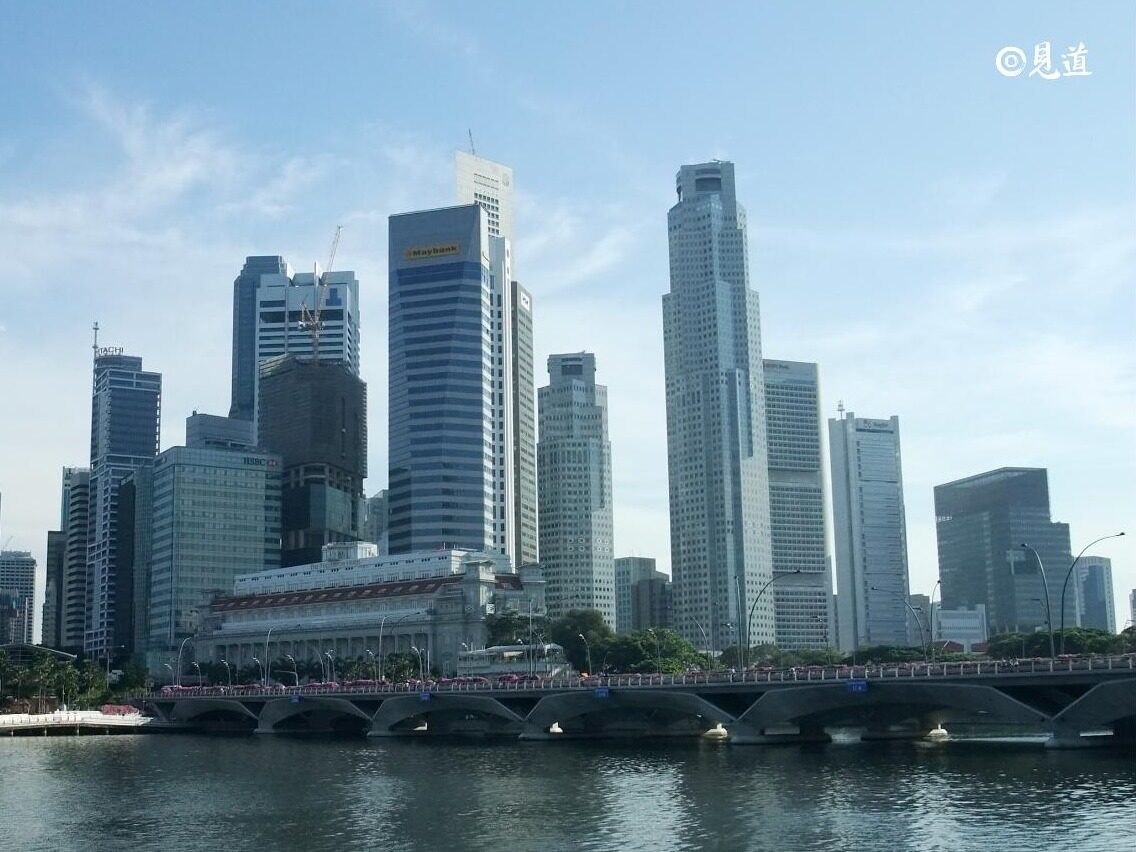- The political mutual trust between China and Uruguay has been deepening, and cooperation in various fields has achieved fruitful results
In an interview recently, Fernando Lugris, Uruguay's ambassador to China, discussed topics such as China-Latin America anti-epidemic cooperation, China-Uzbekistan Belt and Road cooperation, and how China and Latin America can jointly build high-quality development of the Belt and Road in the post-epidemic era.
China and Latin America join hands to fight the epidemic
Fernando Lugris: I arrived in China in December 2015 and presented my credentials to President Xi Jinping, and I officially became Uruguay's ambassador to China. Before that, I have visited China many times, and over the years I have witnessed incredible changes in China. But at this moment, I would like to speak on behalf of the Latin American and Caribbean missions and ambassadors, thanking China for providing us with a strong guarantee against the epidemic. In China, we are fortunate to witness the government's excellent control of the epidemic; in the international community, China has also generously extended a hand of friendship and donated medical equipment, epidemic prevention materials and vaccines to Latin American countries.
What impressed me most was the visit to Wuhan by the Latin American and Caribbean mission in April this year. Although Wuhan suffered heavy losses in the early stages of the epidemic, through the strong control of the government and the joint efforts of the people across the country, production and life in the city have gradually recovered in an orderly manner. This city is full of positive energy, full of positive young people, more than one million college students, and many world-class universities. I would like to recommend all friends from Latin America and the Caribbean to visit this great city. During their visit to Wuhan, the ambassadors learned about the experiences of the nurses, doctors and other staff who were fighting the epidemic on the front line. We are happy to be able to visit this safe city today and fully restored to normal.
What role does China play in the fight against the epidemic in Latin America? Fernando Lugris: During the epidemic, the Chinese government and the governments of Latin America and the Caribbean have maintained efficient communication. In the early stage of the outbreak in China, the ambassadors to China of all Latin American and Caribbean countries kept abreast of the latest situation in Wuhan and sent requests to their respective countries to support China.
After the epidemic broke out in Latin America, the Chinese government has given us tremendous help. With the support of the Chinese government, China has held many important online conferences with many countries in Latin America. The anti-epidemic experience shared by Chinese doctors with us and the material assistance provided by the Chinese government have played a key role in the local anti-epidemic. The Chinese vaccine is widely vaccinated in Uruguay. The President of Uruguay, Mr. Luis Lacalle Pou, took the lead in vaccinating the Chinese Coxing Vaccine. At present, Uruguay has completed two doses of vaccination with a population of approximately 70% of the total population, and is one of the first countries in the world to achieve this level of vaccination. At the same time, we are launching the third booster vaccination. In my opinion, Uruguay is a role model worthy of the whole world in terms of vaccination, and this achievement is to a large extent thanks to China.
China and Latin America have made great achievements in jointly building the Belt and Road Initiative
How is Uruguay's participation in the Belt and Road cooperation? Fernando Lugris: In October 2016, Uruguay expressed its willingness to join the Belt and Road Initiative at the national level. It was the first country in Latin America and the Caribbean to express its wish to join this initiative. In 2018, Uruguay and China signed a Memorandum of Understanding on Belt and Road Cooperation and formally joined the Belt and Road Initiative. As the first Latin American countries to join the Belt and Road Initiative and the first member of the Mercosur, Uruguay hopes to contribute to the joint construction of this global initiative.
In recent years, under the Belt and Road cooperation, the scale of bilateral trade has continued to expand. China is Uruguay's main export destination and first trading partner. Some of our important agricultural products, such as wine and olive oil, have begun to enter the Chinese market. China’s high-quality solar panels and cost-effective mobile phones have also entered Uruguay, improving the quality of life of the locals.
The Chinese and Uruguayan economies are highly complementary. The two countries can cooperate in many aspects in the future. We hope that more Uruguayan products can enter China.
Currently, 19 Latin American countries have joined the Belt and Road Initiative. What does this mean for the rest of the world? Fernando Lugris: I think this is a clear signal from Latin America and the Caribbean. At the last ministerial meeting of the China-Latin America and Caribbean Community Forum (China-LAC Forum), we actively reached a number of agreements with China. Under the framework of the Belt and Road Initiative, Latin America and the Caribbean are willing to make their own contributions to this initiative.
The spirit of the Belt and Road Initiative has always inspired ambassadors to China in Latin America and the Caribbean. We are all actively promoting and enhancing the bilateral relations between countries and China. At the same time, we also hope to enhance mutual understanding and trust with China as a whole.
The future of China-Latin America Belt and Road cooperation can be expected
In the post-epidemic era, what are the development prospects of the Belt and Road Initiative in Latin America? Fernando Lugris: I think high-quality development is the key. In the post-epidemic era, the world needs to reflect more on environmental issues and human health issues. This requires us to better protect the environment, devote ourselves to producing high-quality products, and promote sustainable trade. For China, Latin America's role as a supplier of health products will be further strengthened.
We hope that the China-Latin America Forum, which has been affected by the epidemic, can be restarted to promote the continued deepening of bilateral relations. At the same time, I hope that the leaders of Latin American countries can pay state visits to China, promote bilateral friendship and elevate bilateral relations to a new height.
In addition, we must not only strengthen economic and trade cooperation, but also conduct more exchanges in the fields of research, science, technology, culture, education, and sports.
Under the framework of the Belt and Road Initiative, in which specific areas can the two countries deepen cooperation? Fernando Lugris: In the future, we will have a comprehensive plan to carry out within the framework of the Belt and Road Initiative. Food, information services and logistics are Uruguay's three core industries, and they are also three areas where we hope to further deepen cooperation with China in the future.
First, in terms of food cooperation, Uruguay, as a major producer of healthy food, hopes to contribute to the food safety vision of the Belt and Road Initiative. In recent years, more and more Uruguayan products have been exported to China, such as Uruguayan milk, milk powder, cheese and butter and other dairy products. In terms of meat exports, 60% of Uruguayan beef's annual output enters the Chinese market, and this data has maintained a high growth rate. The above are all good results achieved in Sino-Uzbek trade.
In the future, the two countries should devote themselves to finding efficient communication channels in the food industry, not only between our exporters, manufacturers and Chinese consumers, but also between the universities and research institutions of both sides to better practice. The concept of "living healthier in the 21st century". The two sides need to reach more agreements so that more high-quality Uruguayan products can enter the Chinese market. At the same time, both parties should further reduce tariffs.
Secondly, Uruguay has a very developed information service industry and is also one of the most digitalized countries in the world. It is very interested in participating in the "Digital Silk Road". Our leading companies in the information technology industry have begun to open offices in China and actively interact with Chinese companies; Uruguay is also among the best in the development of high-tech technologies, and local technology companies are very interested in cooperation with the Belt and Road Initiative. We hope Uruguay will become a node of the Digital One Belt One Road. We hope that in the future, products developed by Uruguayan companies in China or products jointly developed by Chinese and Uruguayan companies can reach the entire Americas.
Third, in terms of logistics cooperation, Uruguay has historically been an important multimodal transportation hub in the South Atlantic. Uruguay has the only free port on the Atlantic coast of South America, the Free Port of Montevideo, and more than a dozen free zones, which facilitate the development of various industries. Therefore, the One Belt One Road project can take advantage of Uruguay’s many advantages, such as a well-developed logistics network, tariff exemption policies, and free trade agreements with Argentina, Brazil, Paraguay, Bolivia, Chile, Colombia, and Mexico—all of which can give China Enterprises bring many conveniences.
In addition to the above three areas, China and Uzbekistan will have more exchanges in the fields of culture and education in the future. Taking tourism as an example, Chinese tourists can learn about Antarctica, discover Machu Picchu, visit the beautiful Pampas grasslands, taste wine and beef, learn about local Gaucho culture, and visit many UNESCO sites.
With the increasing importance of people-to-people exchanges, I believe that Confucius Institutes in Uruguay need to expand and we need to learn more about Chinese knowledge, culture, academics and education. The Belt and Road Initiative should provide this platform to promote more cultural exchanges between the two countries and better promote people-to-people bonds.
Uruguay is waiting for you
What are the conveniences for Chinese companies to invest in Uruguay? Fernando Lugris: The stability of bilateral relations is very important to foreign investors. Therefore, I think the most important thing is to convey to Chinese investors the idea that Uruguay is a country that maintains good relations with China. On the one hand, under Uruguay’s preferential investment policies, foreign investors’ investment in Uruguay enjoys many legal and institutional protections. On the other hand, Uruguay has a convenient logistics system, free trade zones, free ports, etc., and is an important gateway to the entire Latin America and Caribbean region.
Here, I would like to give some advice to Chinese investors. Chinese companies often only see a single Latin American market, but what Uruguay can provide is the opportunity to take advantage of the country’s location to conduct trade with South America and the entire Latin America. . We open our arms to Chinese investors and welcome to invest in Uzbekistan. Editor/Tian Zengpeng
Comment
 Praise
Praise
 Collect
Collect
 Comment
Comment
 Search
Search














Write something~